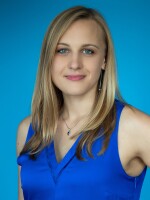NOEL KING, HOST:
One of President Trump's top picks for the U.S. Supreme Court is Amy Coney Barrett. Her connection to the Catholic group People Of Praise became an issue during her confirmation hearings to be an appeals court judge last year. Democratic Senator Dianne Feinstein asked her if she could separate her religious beliefs from the law.
(SOUNDBITE OF ARCHIVED RECORDING)
DIANNE FEINSTEIN: When you read your speeches, the conclusion one draws is that the dogma lives loudly within you, and that's of concern.
KING: That prompted a backlash from critics, accusing Feinstein of being anti-Catholic. NPR's Sarah McCammon looks at how the religious makeup of the court has evolved over time and why that matters.
SARAH MCCAMMON, BYLINE: For most of U.S. history, the Supreme Court, like the country, was dominated by Protestant Christians. But today, the court is mostly Catholic and Jewish.
LOUIS MICHAEL SEIDMAN: It's extraordinary and unprecedented in American history.
MCCAMMON: Louis Michael Seidman is a constitutional law professor at Georgetown University, which is affiliated with the Catholic Church.
SEIDMAN: There was a time when, for example, there was tremendous anti-Catholic bias. And, of course, there was a time when there was a lot of anti-Semitism, and a lot of that has gone away.
MCCAMMON: Six of the nine justices are Catholic, if you count Neil Gorsuch, who was raised Catholic and has attended an Episcopal church. The other three are Jewish. Harvard Law professor Noah Feldman says that's partially explained by the fact that there's a strong pipeline of potential Jewish justices.
NOAH FELDMAN: And the reason for that is also a little hard to pin down, except to say that academia was an area which, like many other areas of American life, was originally closed to Jews in the late 19th century.
MCCAMMON: Feldman says law schools began opening up to Jewish professors before many other academic disciplines. As for Catholics, their dominance on the court may have something to do with ideology, says Marci Hamilton, a professor at the University of Pennsylvania who once clerked for former Supreme Court Justice Sandra Day O'Connor.
MARCI HAMILTON: I think it's because the Catholic vote can be relatively predictable on abortion. That doesn't fit with Justice Sotomayor, but with respect to the male Catholics that have been on the court, they have been largely devoted to decreasing the power of Roe v. Wade.
MCCAMMON: A major goal for many conservatives, and one supported by Catholic theology. Trump's shortlist for the next justice was overwhelmingly Catholic. One major religious group known for its social conservatism that's notably absent from the court is evangelicals. That's despite white evangelicals' influence in the Trump administration and critical role in helping him win the presidency. John Fea is a historian at Messiah College, an evangelical institution in Pennsylvania.
JOHN FEA: A lot of that has to do with the direction that the evangelical movement has taken in America.
MCCAMMON: Fea says unlike Catholicism and Judaism, which both have a long intellectual tradition, American evangelicalism has been more practical in focus.
FEA: Evangelicals are primarily concerned with preaching the gospel, with service. So as a result, you have a lot of evangelicals doing great things, but they're not necessarily pursuing kind of intellectual vocation because they're out trying to win people to Christ.
MCCAMMON: Feldman, from Harvard Law, says in a perfect world, the justices' religion or lack of it wouldn't matter.
FELDMAN: If you think about it, the Constitution itself says there shall be no religious tests for office - so it will be good not to think about it in any way. In reality, of course, there is some broad cultural association sometimes between people's religious beliefs or affiliations and their politics.
MCCAMMON: For that reason, Feldman says, the nominee's religion likely will be part of the conversation. But, he says, the most important question should be, is he or she a good judge? Sarah McCammon, NPR News, Washington. Transcript provided by NPR, Copyright NPR.



